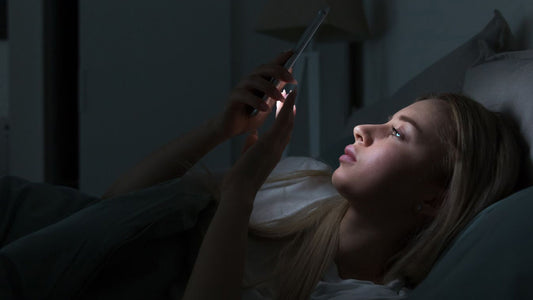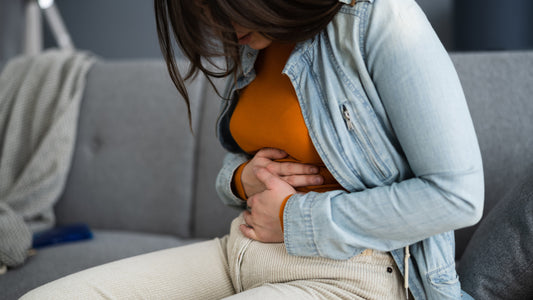If your eyes have ever felt irritated or scratchy after a long day, you know a bit of what it feels like to have dry eyes. With over 30 million Americans suffering from dry eye disease, the majority of them being women, it’s important that we talk about this condition. I trust Dr. Jenna Zigler and her team at Hydrate 100% when it comes to this topic. It is something I do not discuss often, but many women that have come to my clinic have brought up dry eyes as they are going through menopause (I know, just another thing to deal with!) I find this information helpful for anyone struggling with dry eye. -Dr. Anna
What is Dry Eye Disease?
The comfort of the eyes largely depends on the quality and quantity of the tears, and the tears are composed of three layers. The mucin layer, pressed up snug against the eyeball, keeps the tears intact and adhered to the eye. The next layer is the aqueous, or watery, layer. This layer makes up the bulk of the tear film and provides the lubrication. The outermost layer is the oily lipid layer, produced by the meibomian glands of the eyelids and responsible for preventing evaporation of the tear film.
Dry eye disease occurs when there is any disruption of the production, spreading, quality, or evaporation of the tear film. It is a multifactorial condition where inflammation plays an integral role.
What Causes Dry Eye?
There are many things that can contribute to dry eye disease, but we can break these down into two groups. Aqueous deficient dry eye encompasses anything that disrupts the ability of the lacrimal gland to produce the watery portion of the tears. This is most often due to Sjogren’s syndrome, aging, hormone fluctuations, and systemic medications.
Evaporative dry eye occurs when there is a disruption of the meibomian glands, the tiny oil-producing factories in your eyelids. When your glands are not producing healthy oil, it can become hardened and stagnant, eventually causing meibomian gland atrophy. Causes for evaporative dry eye disease include meibomian gland dysfunction, contact lens use, preservatives in eye drops, diseases of the ocular surface (such as allergies), isotretinoin use, and low blink rate.
As you can see, there are many different causes of dry eye, but there are also many different solutions. Let’s get into some of the most natural ways to heal your dry eyes.
7 Natural Remedies for Dry Eye and Blepharitis
1. Drink plenty of waterSo many people are dehydrated without realizing it, and dehydration can contribute to chronic disease. When you’re not properly hydrated, the cells in your body cannot function well. If you have dry eyes, I recommend drinking half your body weight in ounces of filtered water per day. If you weigh 150 pounds, you would drink about 75 ounces per day. Of course, work with your doctor on the correct amount for you, but this works as a general rule.
2. Eat a plant-rich, alkaline dietAfter making sure you’re drinking plenty of filtered water daily, you need to look at what you’re eating. Are you consuming processed foods or lots of added sugar? These things can lead to inflammation, and they’ll only make dry eyes worse. For optimal health and decrease in disease, focus on plants. I like to recommend a plant-rich diet for patients because plants contain so many nutrients and antioxidants that help you fight free radicals and inflammation. They also keep your body in an alkaline state, which is beneficial for total body health. I could elaborate forever on this topic, but this would simply look like packing more vegetables, some fruit, and lots of healthy fats into your daily diet.
One very simple way to do this is to replace your breakfast (or lunch) with a green smoothie. By doing this, you’re flooding your body with hydration, antioxidants, and vitamins first thing in the morning. Besides, most of you are consuming not-so-healthy foods for breakfast anyway! If you begin to bring in the good (leafy green and cruciferous vegetables, low sugar fruits, and healthy fats), you’ll have less room in your day for eating the bad.
Dr. Cabeca has a great article that can help you get started on eating a plant-rich diet, and you can find that here.
3. Remove your makeupYou wouldn’t believe the number of women I see who do not thoroughly remove their makeup at night. This is allowing chemicals from the makeup as well as bacteria to sit on your skin and near your eyes all night long. If you want to have bright, healthy eyes, removing your makeup at night is a must. I usually recommend an oil-based eye makeup remover, because other options tend to contain chemicals that aren’t eye friendly.
4.Use a warm compressIf you suffer from dry eyes, or even if you’ve just had a long day working on the computer, a warm compress can provide a ton of relief. Commercially available eye masks are recommended because they hold heat and work much more effectively than a warm washcloth. Simply heat your mask in the microwave for 20 seconds, and then lie it over your closed eyes for 10-20 minutes. Relief!
5. Practice eyelid hygieneDentists have trained you very well to brush your teeth twice per day to prevent cavities. Well, you need to be doing similar hygiene on your eyes and eyelids! Just like bacteria can build up and cause cavities, it can also build up and lead to meibomian gland dysfunction, blepharitis, and dry eyes. I recommend using a hypochlorous acid cleanser twice daily because this solution is a natural substance made by your body to fight microorganisms. It’s very gentle and can even be used on eyelash extensions because it contains no alcohol or oil.
6. Consider supplementing with omega-3 fatty acidsThere has been conflicting research on taking omega-3 supplements for dry eye disease, but the conclusion has been that they are beneficial for this condition. The fact is, the majority of you are eating a standard American diet filled with tons of omega-6 but lacking in omega-3 fatty acids. The proper ratio of omega-6 to omega-3 is necessary for overall health, so if you’re not eating lots of wild-caught salmon or other choices loaded with omega-3s, you may want to consider supplementing. You can choose a sustainably sourced, triglyceride-based omega-3, one made with algae, or cod liver oil.
7. Get better sleepHaving a sleep regimen is so important when you have dry eyes and is just great for overall health. Going to bed at the same time every night and waking up at the same time daily can do wonders for your health. Also, try to avoid electronics such as your smartphone, TV, and computer at least one hour before bed (preferably two). By doing this, you’ll achieve a deeper, restorative sleep.
As you can see, many of the above recommendations for treating dry eye disease may also help treat overall inflammation. Living a healthy lifestyle is the number one way to avoid chronic disease.
We would love to help you get started on the right path toward healing your dry eye naturally. We, at Eye Love, are on a mission to help 1,000,000 dry eye sufferers heal this disease naturally by 2030. If you need help with dry eye, please take advantage of this free special offer we have for first-time purchasers. Get your first bottle of Heyedrate Lid and Lash Cleanser for free, just pay shipping by clicking here.
About Dr. Jenna Zigler
Dr. Jenna Zigler graduated in 2011 from The Ohio State University College of Optometry with Summa Cum Laude honors. She is an optometrist and the co-founder of Eye Love, whose mission is to heal 1,000,000 dry eye sufferers naturally. Dr. Jenna and her husband use the profits from Eye Love to fund free and low-cost clinics in Jamaica and in the US. They do this through their charity, the Eye Love Cares Foundation, which also provides exams, glasses, and sunglasses for those in need, free education, and scholarships for students who align with their mission.
Previously, Dr. Jenna owned two optometry practices, which were sold in 2017 to focus on Eye Love and her other brand, Heyedrate. Dr. Jenna co-hosts The Dry Eye Show on YouTube and Facebook, and leads and educates a community of over 10,000 dry eye sufferers.




